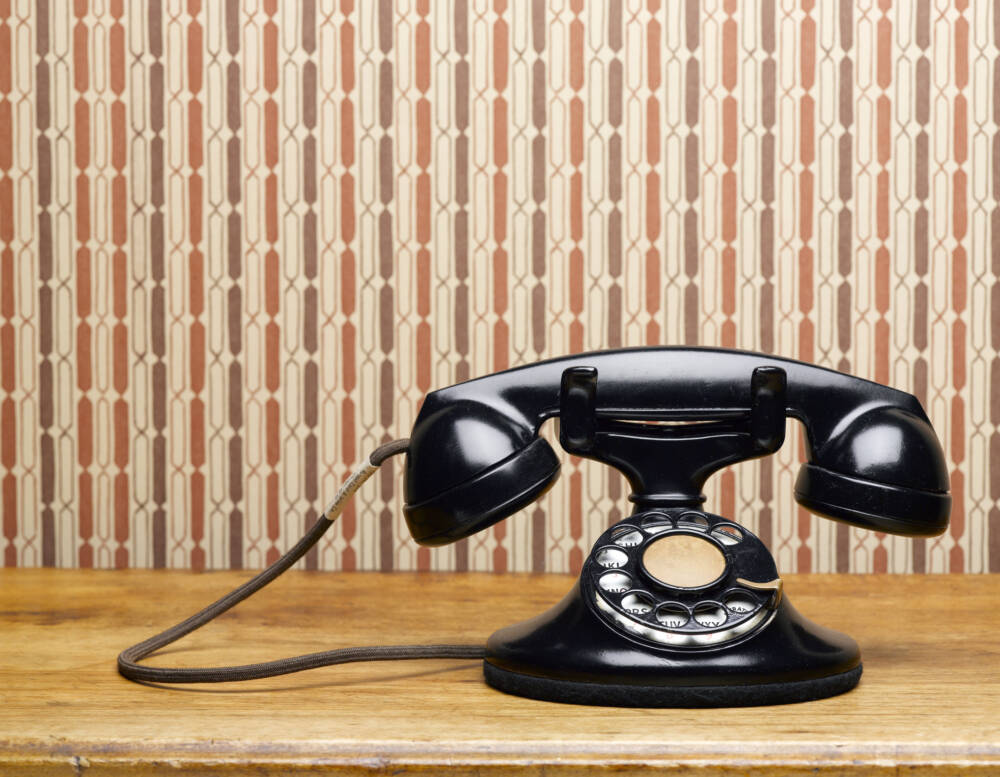Advertisement
Commentary
I made my smartphone dumb. I like it — and me — better this way

One night a couple of months ago, while standing in front of my refrigerator pressing a glass into the water dispenser, I found myself staring at my iPhone. I had reflexively pulled it out of my pocket, I guess, to fill the time it took to fill my glass. But as I stood there staring blankly at my phone’s lock screen — an adorable picture of my kids running on a beach — I couldn’t remember what I had intended to do with it. Did I want to scroll Twitter for a few seconds? Check my email? Maybe just bask in its digital glow? I couldn’t say.
I put the phone back in my pocket, pulled away my nearly overflowing glass and realized: I am addicted to my phone. And not even what was on it — just it, the thing. Over the course of that evening, I became painfully aware of how often I reached for it, or tapped my pocket to make sure it was there or picked it up just to see what it might have to say. I was like Adam and Eve after they ate the fruit. I was exposed — naked, and I knew it.
I contemplated getting rid of the thing altogether and buying a flip phone — the kind I owned back in 2005, the kind that drug dealers use as burners in the movies — but I knew I couldn’t live without my digital music library now firmly trapped within the Apple ecosystem, and I didn’t want to part ways with Waze, the GPS app that I use mostly to tell me when to slow down for speed traps along my long commute.
So, I decided to take the advice I read countless times over the years but was never brave enough to commit to. I made my smartphone dumb.
I went on an app-deleting spree. Anything that pinged or notified or reminded had to go! Games that chimed inviting me to play — gone! Diet apps reminding me it’s time to fast — deleted! And, of course, social media apps buzzing to let me know I was tagged in a photo — shut it down! Next, I deleted my email apps, the default Apple one and Outlook, too. I even deleted Safari, the web browser. Goodbye Google!
I was free. Liberated! I felt great, and I resolved to stay that way. I knew I needed accountability, so I started telling anyone who would listen. I blasted the news to my group chat (I kept text messages on my phone because that seems like what a phone is for), bragged to my wife, held myself up as a paragon of self-control to my kids. I even told my students, one of whom continues to ask me at least once a week if I’m still app-free. I am.
This is the part, in this genre of writing, where I’m supposed to say how I’ve become much more productive, how much better I sleep, how my children seem to love me more now that they don’t have to compete with a screen for my attention. Some of this true, I suppose. I probably do sleep better now that I don’t mindlessly scroll before bed, and, when it comes to my kids, if nothing else, it gives me credibility as I continue to delay the day when they get their own phones.
Advertisement
I realize now that I missed me -- the me that always lived inside my head.
But mostly what I gained by this lifestyle change was a lot of idle moments. In other words, boredom. It took a while, but I don’t reflexively reach for my phone in the interstitial moments that naturally arise throughout the day. When I’m filling a water glass, I just have to stand there with my own thoughts watching the glass fill in the cool white refrigerator light. While I wait for the photocopier to print handouts for my students, I try to think of something funny to say at the start of class.
When I wait in the carpool lane at my kids’ school, I take a kind of smug pleasure in being the only one following the guidance of the sign that asks parents to refrain from using their phones during pick up. I keep a book in my bag and magazines in my car — real, physical, glossy paper magazines. There’s something so satisfying about turning a page that swiping on glass could never replace.
Other times, I just sit there. I watch people; I forgot how much I enjoyed doing that. I think and plan and talk to myself like I always used to. I realize now that I missed me — the me that always lived inside my head. For years, I was good company for myself until I fell into the trap of endless distraction.
We don’t yet know what we’re losing as a society as we lose our ability to be bored, to sit with our thoughts, to live with not knowing everything instantly all the time. How can we think creatively, innovatively, if we never take time to think? What will this mean for future generations who may never remember a quiet time before — who never even experience a world without the internet at their fingertips, or on their wrist, or wherever they put it next?
These are the kinds of thoughts that fill my mind now, as I wait for my water glass to fill.
